Hello again, friends. Judy Guston here with more info about The Rosenbach’s great Ulysses collections.
I would be terribly remiss if I didn’t direct your attention to our handy Joyce Collections Guide, which you can find on our website here. Once our research library is open again, I hope you’ll feel welcome to make an appointment to see our collections objects in person!
It may interest you to note that, during his lifetime, Dr. A. S. W. Rosenbach (1876-1952) owned only five (marked with * in the Guide) of the items in our current Joyce collection. The rest have been collected by The Rosenbach since its founding in 1954. Our most recent acquisitions are noted with + in the Guide.
I hope you enjoyed our last discussion about the Ulysses manuscript, which you now know was purchased by Dr. Rosenbach in 1924. But he already owned a first edition of the novel by the time of that historic purchase. And you will ask, because you are a learned bunch, “How did he acquire a first edition in the United States when the novel had been banned here for obscenity by 1921?” The answer to that question is, the same way everyone else did: smuggling.
In his case, the deed was done by his friend, publisher and auctioneer Mitchell Kennerley (1878-1950), who inscribed the volume to him in 1922, its date of publication by Shakespeare and Company in Paris. A dealer and publisher of the works of Wilde and Whitman, Kennerley had been arrested nearly a decade earlier for sending an “obscene” book through the mail. We don’t know the details of his delivery of Ulysses to Dr. Rosenbach, but we do have evidence of the methods of others.
See below an image of the first edition (Rosenbach copy 1), which Joyce signed to his printer, Maurice Darantière. It remains in its original wrapper, the color of which Joyce wanted to mimic the blue of the Greek flag. Dr. Rosenbach’s book is our copy 3, but unfortunately, at this time of separation from our collections, I don’t have an image to share with you. Dr. Rosenbach’s copy must have come to him from Kennerley looking just as the first edition shown does, but he later had it enclosed—with the blue wrapper still intact—in a binding (red Morocco, for those who want to know…) made for him by the famed British bindery Riviere & Sons.
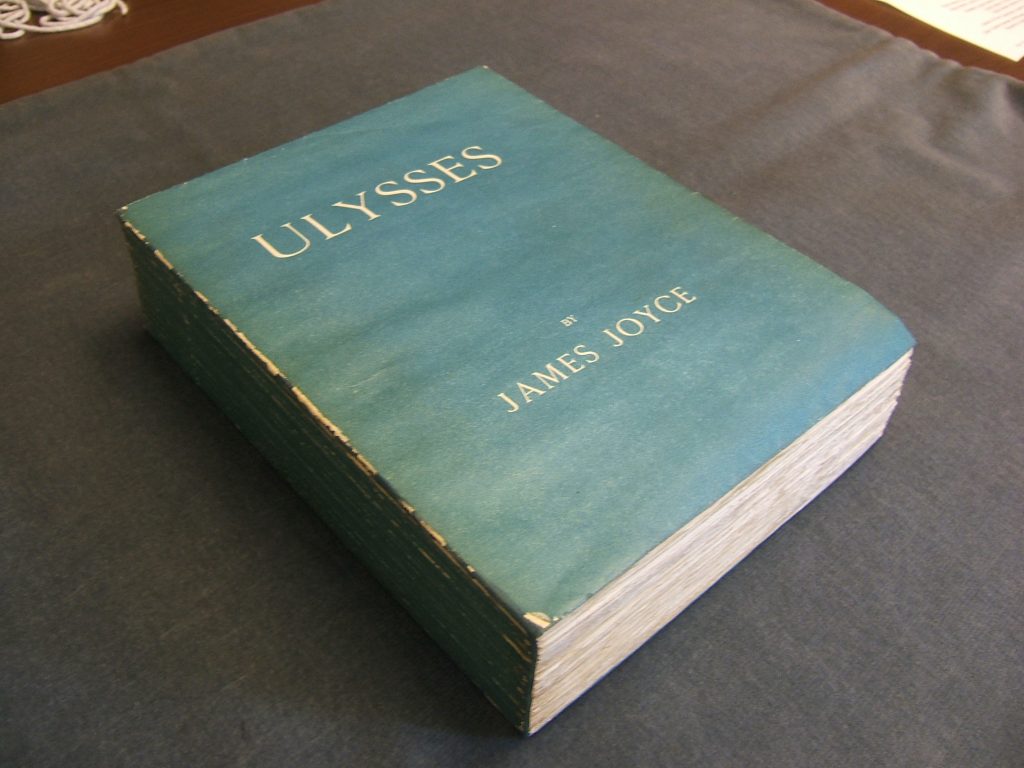
So how did these contraband editions escape the notice of censors (actually, customs agents) as they entered the United States? Here’s one example. Chicago booksellers Hamill and Barker printed this dust jacked for Arthur West’s Dragnets, a book that never existed, in order to evade the authorities. They imported a number of copies of Ulysses from Shakespeare and Company in Paris into the country under a title that was possibly intended to poke fun at the very customs authorities whose job was to discover the books’ true identity.
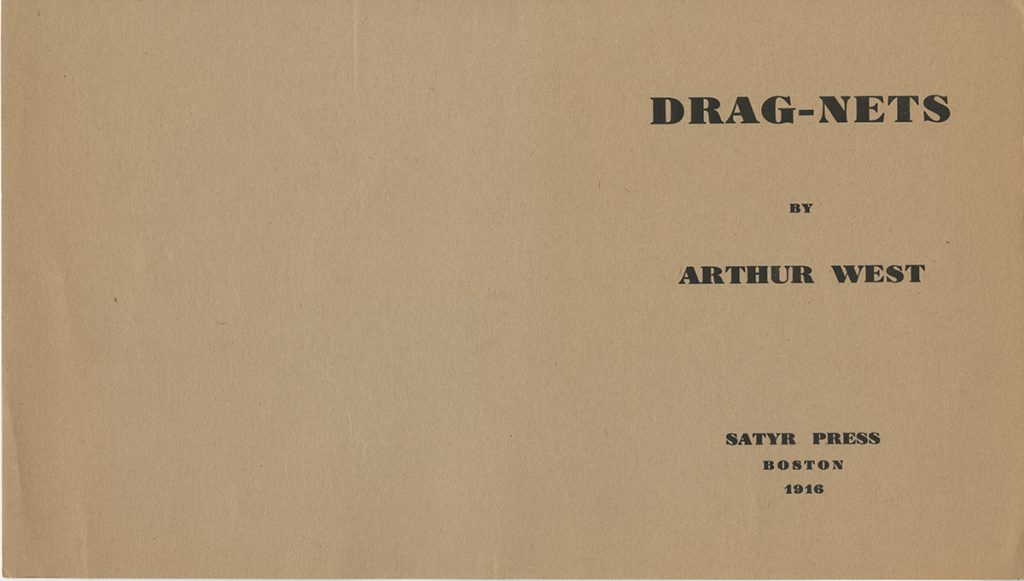
Finally, in 1933, Joyce was able to find an American publisher, Random House, willing to challenge the ban in court by first printing the novel and then having a copy seized by U. S. Customs. One week after the repeal of Prohibition in December 1933, the judge in the case stated (to paraphrase) that Ulysses was unusually frank, but not pornographic and ruled that the ban was to be repealed. See The Rosenbach’s copy of the ruling below. Random House issued the first New York edition of Ulysses in 1934.
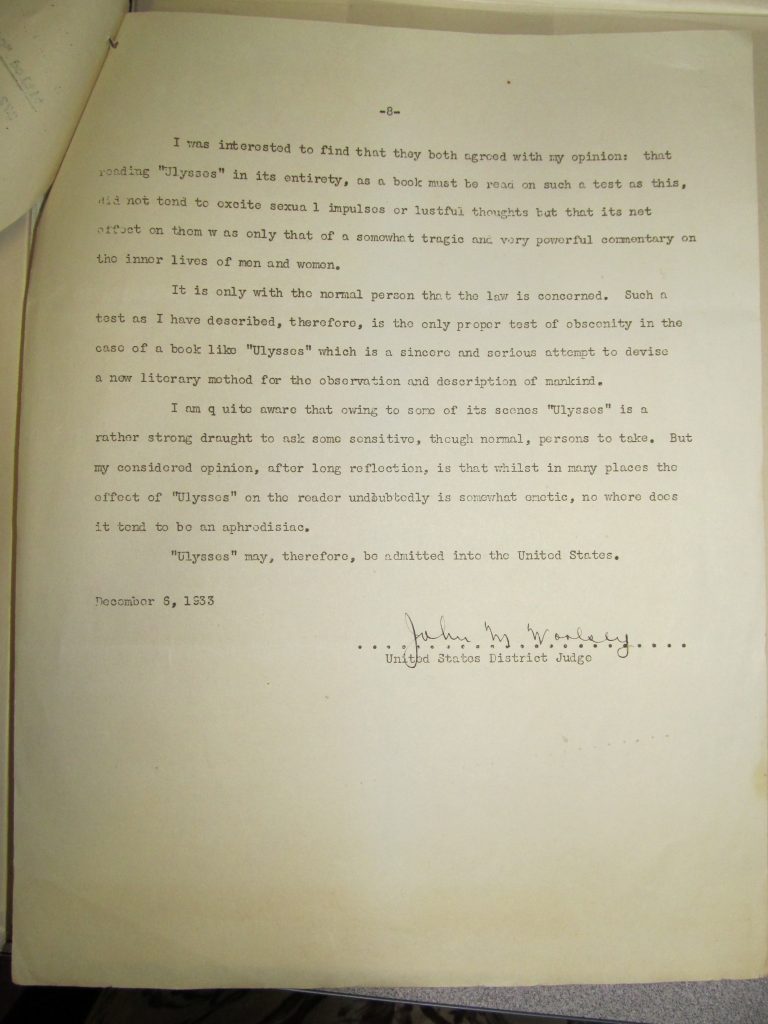
Now, on this happy note, I did promise last week that I would share two additional Joycean rhymes with you. Thank you, for posting yours, of course, and please keep them coming! As you recall, Joyce wrote a little rhyme scolding Dr. Rosenbach for misspelling Ulysses in a cable—and possibly out of a bit of pique for the low price Dr. R. paid for his manuscript at auction. Despite Joyce’s lack of reply, Dr. Rosenbach pursued him further, obtaining a letter of introduction from John Quinn the month after the sale of the manuscript. Although many would like to imagine a meeting between the two, it seems never to have occurred. Yet, in Dr. R.’s travel notebook for 1928, there are two limericks attributed to Joyce:
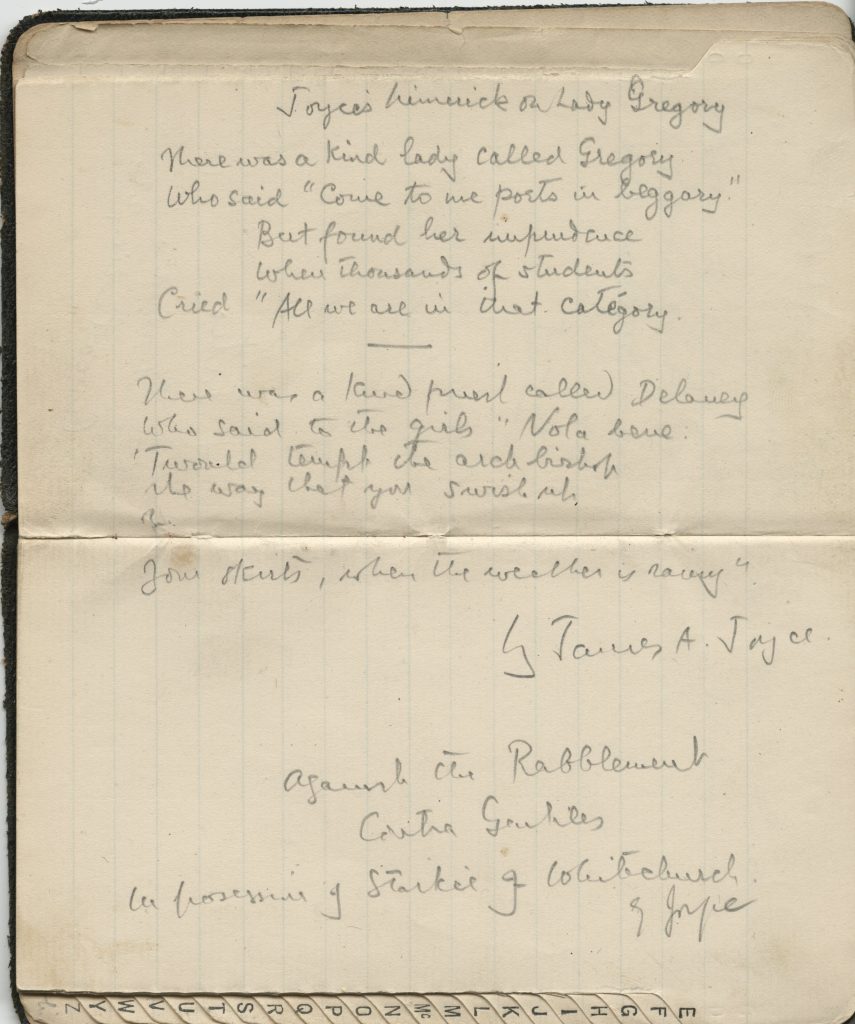
They read (seemingly in Dr. Rosenbach’s hand):
“There was a kind lady called Gregory
Who said ‘Come to me poets in beggary.’
But found her imprudence
When thousands of students
Cried ‘All we are in that category.’”
“There was a kind priest called Delaney
Who said to the girls ‘Nota bene:
‘Twould tempt the archbishop
The way that you swish up
Your skirts, when the weather is rainy.’”
Well. If Dr. Rosenbach inscribed these limericks in his travel notebook—travels that took him all over Europe—and he didn’t meet Joyce, where did these limericks come from? Perhaps his contacts give us a clue, although completely circumstantial:
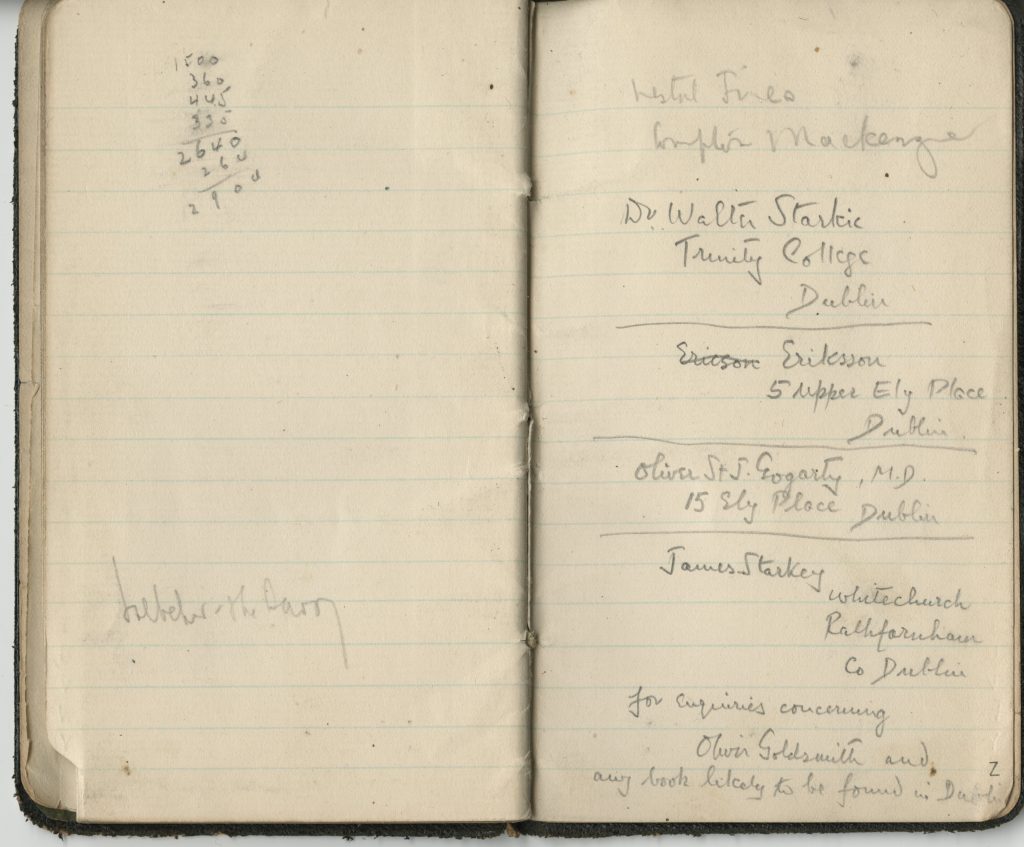
Do you notice a familiar name on this page related to the creation of Ulysses? Yes! Joyce’s friend from youth, Martello Tower resident, and model for Buck Mulligan, the writer Oliver St. John Gogarty. Could it be that Dr. Rosenbach met him in Dublin and he was the source of Joyce’s limericks? We can only guess, but I hope you find the possibility enticing….
Till next time.
